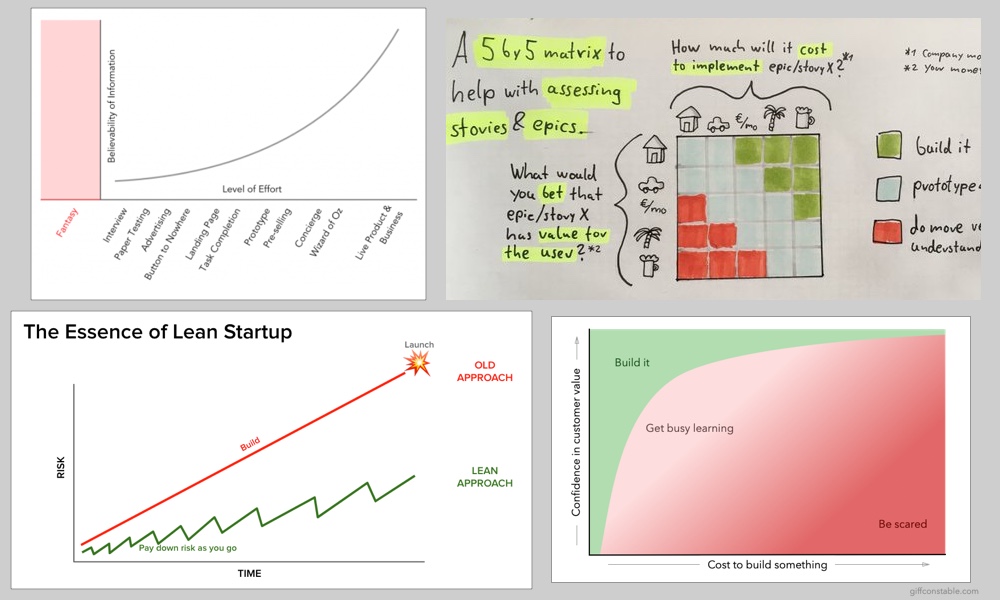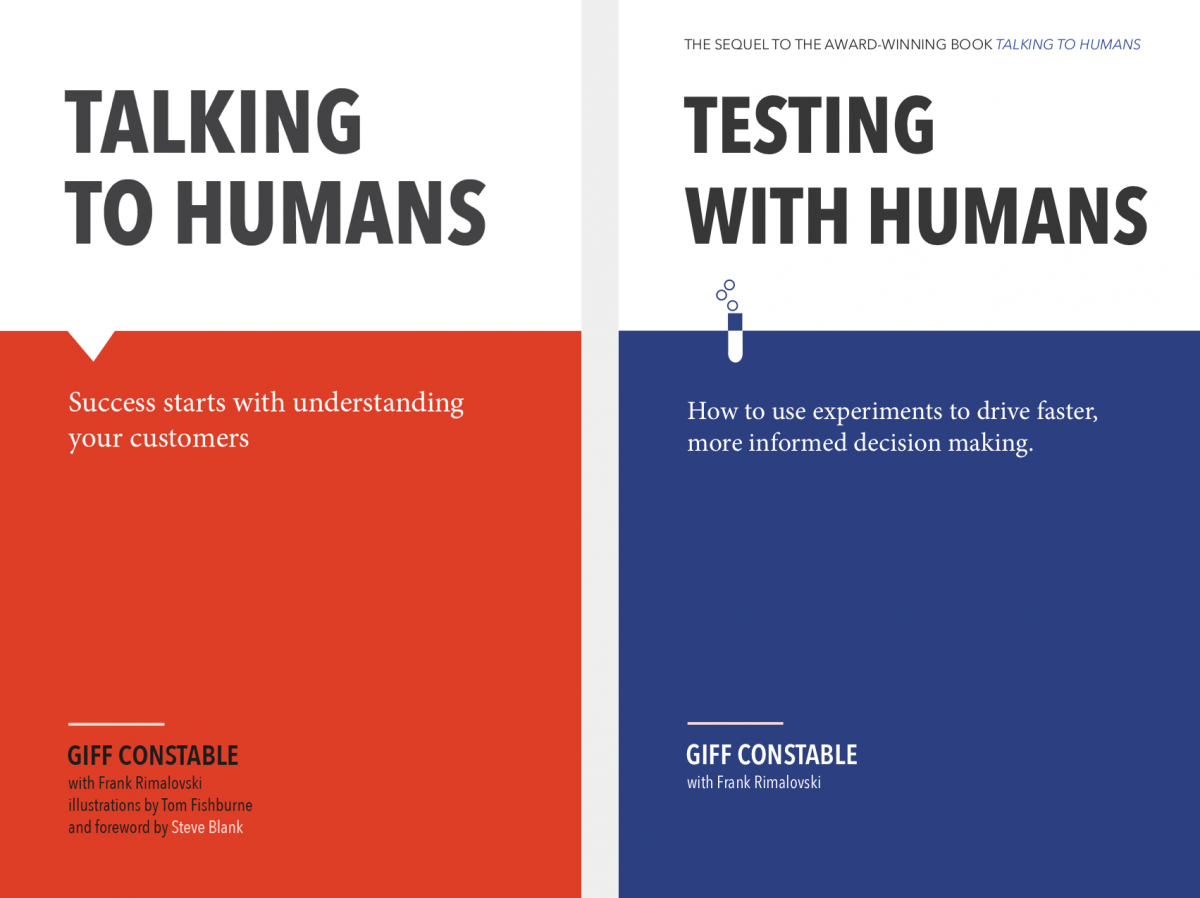In my two books on testing new business ideas, I have a diagram called the “truth curve”. I often get credit for a variation that my friends Jeff Gothelf and Jeff Patton created, but their diagram makes a different, equally valuable point. I’m going to take the liberty of calling their graph the “build curve”. Let’s look at them both. …
Interviews versus Experiments
How do you choose when to do an experiment versus an interview? I received a really interesting question last week at the Lean Startup Conference. At the event, I ran two workshops—one on customer discovery (the topic of Talking to Humans) and one on experiments (the topic of Testing with Humans). The asker was trying to understand a shopper’s experience …
12 Tips for Running Effective Experiments
This post originally appeared on Medium but I am now posting more regularly here. Before you rally a team, spend money, and move heaven and earth to bring a new product or new company into being, wouldn’t you want to de-risk your vision, timing and execution? Wouldn’t you want to make more informed decisions? There are two great places to start: …
Product-Market Fit is an Illusion
Lately, I’ve found myself questioning the concept of product-market fit. Not long after Marc Andreessen coined the term, entrepreneurs (and intrapreneurs) starting asking themselves, “do I have it yet?” and often rushing to answer “yes,” with all sorts of bad consequences. I did a tweetstorm/post about the mistakes that come with getting it wrong, but the topic is still bouncing …
Answering the product-market fit question wrong
For a decade now, entrepreneurs have been asking themselves “do I have product/market fit?” They usually answer it wrong. Product-market fit does *not* merely mean growth. Growth can be forced for a time (even years) with clever hacks and heavy spend, but the piper comes calling with churn rates. It’s easy to *want* to believe that one has pm-fit, but …
Getting Tactical: the experiment design studio
If you are trying to get your team to think more creatively in terms of experiments, this exercise might be useful. Why? When it comes to creating new products (or even features), experiments help you make more informed decisions. Ideally you make your experiment as small as possible to get believable insights, but they come in all shapes and sizes. My favorite …
Early Stage Lean: Running Weekly Decision Meetings
At Neo (recently acquired by Pivotal), we tried to put lean startup ideas into practice. Several years ago, Time Inc was our first client where we got to dream up and rigorously test new ideas over a period of several weeks. During that initial project, I realized that we needed a weekly ritual that helped us keep our feet to the …
Get Explicit with a Risks Dashboard
At the start of mentoring an entrepreneurship class the other day, I realized: “This group has no consensus or specificity around their belief system.” If you don’t know what you believe, how can you check if you are right? Working blindly leads to working harder, not smarter. There are lots of ways to get specificity and shared understanding around your belief system, …
Introvert Entrepreneurs and External Affirmation
The Wall St. Journal published a piece today on “Why Introverts Make Great Entrepreneurs.” There are a lot of interesting points, but one section got a rise out of me. “They don’t need external affirmation,” the piece reads. “They generally don’t look for people to tell them whether an idea is worth pursuing. They tend to think it through before …
Custdev: Starting with First Principles
On Friday morning, I popped over to Frank Rimalovski and Lindsay Gray’s always-impressive startup class at NYU‘s Entrepreneurial Institute to talk about vetting new ideas. Afterwards, one team asked the classic question, “if I shouldn’t ask speculative questions, and yet my product isn’t ready to test, how can I do customer development?” In their case, they had an interesting scientific breakthrough …




